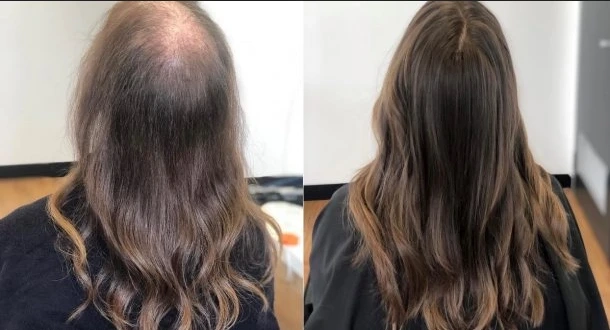When it comes to hair growth, there's no one-size-fits-all solution. Many factors, such as genetics, diet, stress levels, and overall health, can influence the rate at which our hair grows. Fortunately, there are various Hair Growth Treatment available to promote hair growth and address different concerns. Let's delve into some of the most common options:
Over-the-Counter (OTC) Treatments:
OTC treatments are easily accessible and often come in the form of shampoos, conditioners, and serums. These products typically contain ingredients like monoxide, which is FDA-approved for hair loss treatment. They work by stimulating hair follicles and prolonging the growth phase of the hair cycle.
Prescription Medications:
For more severe cases of hair loss, prescription medications may be necessary. Finasteride, for example, is a medication that blocks the hormone dihydrotestosterone (DHT), which is linked to hair loss in men. However, it's essential to consult a healthcare professional before starting any prescription medication to discuss potential side effects and suitability.
Laser Therapy:
Laser therapy involves using low-level laser light to stimulate hair follicles and promote hair growth. This Hair Growth Treatment is non-invasive and can be performed in a clinic or even at home with handheld devices. While results may vary, many people report seeing improvements in hair thickness and density with regular use.
Platelet-Rich Plasma (PRP) Therapy:
PRP therapy harnesses the healing properties of platelets found in the blood to stimulate hair growth. During the procedure, a small amount of blood is drawn from the patient, processed to isolate the platelet-rich plasma, and then injected into the scalp. PRP therapy has gained popularity for its potential to rejuvenate hair follicles and promote hair growth.
Nutritional Supplements:
Certain vitamins and minerals play a vital role in maintaining healthy hair growth. Nutritional supplements containing ingredients like biotin, vitamin D, and iron can help address deficiencies that may contribute to hair loss. However, it's essential to remember that supplements should complement a balanced diet and not replace it entirely.
Scalp Massage and Essential Oils:
Scalp massage increases blood flow to the hair follicles, promoting growth and overall scalp health. When combined with essential oils like rosemary, peppermint, or lavender, the benefits can be even more significant. These oils are believed to have properties that stimulate hair growth and improve hair texture.
Hair Transplant Surgery:
Hair transplant surgery is a more invasive option but can provide long-lasting results for individuals with significant hair loss. During the procedure, hair follicles are harvested from a donor site and transplanted into balding or thinning areas. While it may require some downtime for recovery, many people find the results to be natural-looking and satisfying.
Lifestyle Changes:
Making healthy lifestyle choices can also positively impact hair growth. Managing stress levels, eating a balanced diet rich in vitamins and minerals, staying hydrated, and avoiding damaging hair practices can all contribute to healthier, stronger hair.
Conclusion
Finding the right hair growth treatment depends on individual needs, preferences, and the underlying cause of hair loss. Whether it's through topical treatments, medical interventions, or lifestyle adjustments, there are plenty of options available to support healthy hair growth and restore confidence. Remember to consult with a healthcare professional or dermatologist to determine the best course of action for your specific situation.


